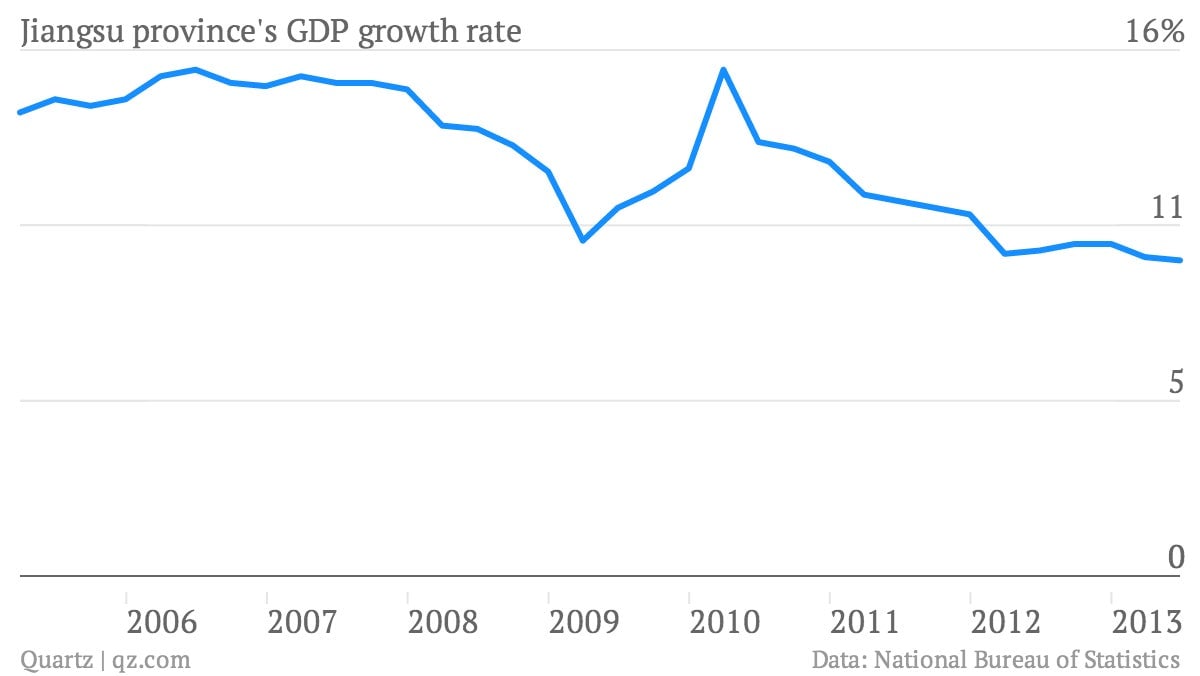Chinese local governments need cash so badly they’re beating, kidnapping and killing to get it
Chinese local governments have taken on scary levels of debt—12.1 trillion yuan ($1.9 trillion), by some estimates. That’s scary for the central government, which will be on the hook to bail out any Chinese Detroits. But it’s scary for residents, too.


Chinese local governments have taken on scary levels of debt—12.1 trillion yuan ($1.9 trillion), by some estimates. That’s scary for the central government, which will be on the hook to bail out any Chinese Detroits. But it’s scary for residents, too.
Take, for example, Hong Xiaorou, a four-year-old girl bulldozed to death in Fujian province on August 29. Or Xu Haifeng, whose family members have been kidnapped on 18 separate occasions, as Reuters reports.
The Hongs and the Xus were resisting “land grabs,” the term commonly used to describe forcible government evictions. Local governments typically earn about half their revenue from land sales, though an academic told Reuters that percentage can be as high as 90%. But to sell land parcels, local governments first need to kick out any current residents. This is usually accomplished through a combination of threats and absurdly unfair compensation to evictees.
In the past, that’s given rise to standoffs with authorities, some of which have turned violent (most prominently, the death while in policy custody of a Wukan villager mediating a land grab dispute in 2011). But the thuggishness that families like the Hongs and the Xus are facing hints at escalating levels of desperation from local officials.
“I asked an official from the demolition team: ‘What is more important – human life or land acquisition?'” said Hong Bingsheng, the father of the little girl (paywall), who was bulldozed as her family tried to prevent a developer’s construction crew from leveling land next to their home. ”The official replied: ‘Land acquisition is more important.'”
The girl’s death may have been accidental. But the violence against Xu Haifeng and her family certainly wasn’t. As Reuters reports, in 2010, Xu and her family were beaten and threatened after they refused to evacuate their home in Wuxi, Jiangsu province, which is one of the most indebted provinces in the country. After Xu’s husband broke down and signed the government’s compensation package, the family received less than half of what they were offered and no property deeds for the apartments to which they were relocated. Xu went to Beijing to file official complaints. Soon thereafter, the abductions began. Xu says family members have been seized and held in closets of a Wuxi hotel at least 18 times. That includes her 74-year-old mother, who has been kidnapped more than 10 times.
Why would land grab violence be escalating? One factor could be a central government crackdown on lending to local governments, which has left some desperate for cash to cover existing debts and pay for city services. At the same time, the economy is slowing sharply, cutting into tax revenue. Here’s a look at how Jiangsu’s economic growth has slowed in the last few years:

This has left local governments like Wuxi, where Xu and her family are from, needing money badly. For instance, one of its biggest companies, Wuxi Suntech, went bust earlier this year. Along with the bank credit limits, factors like that have left the local government turning to shadow banking to cover its debt obligations, despite the high interest payments on these loans. Wuxi has racked up 9.2 billion yuan in debt from shadow lending via investment trusts, paying around 10% interest.